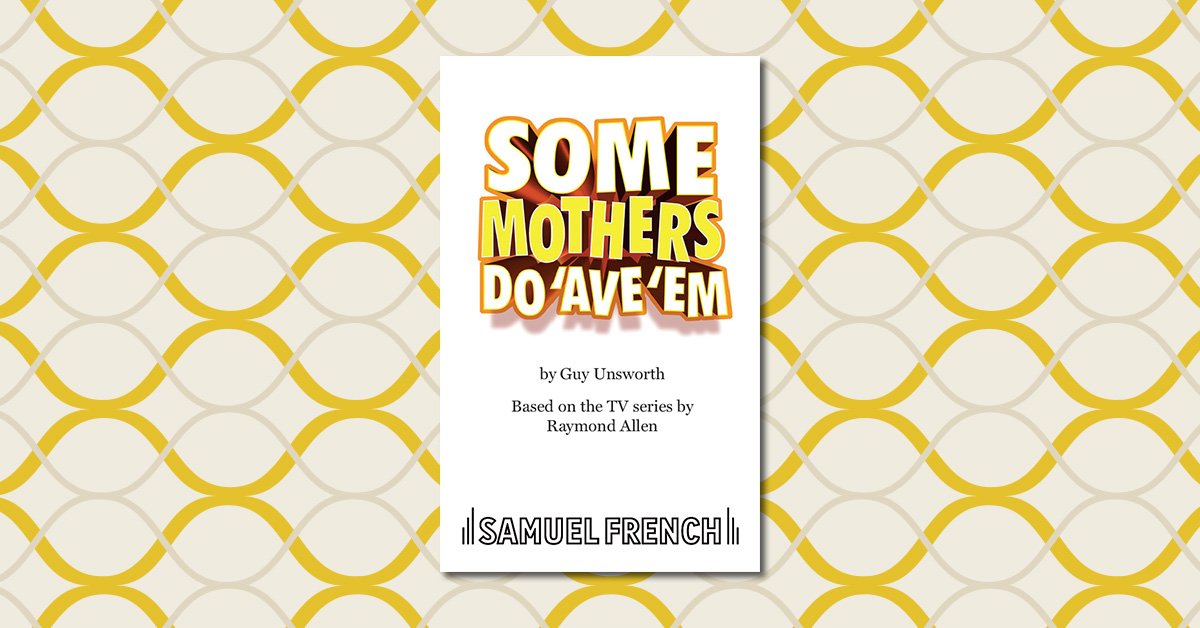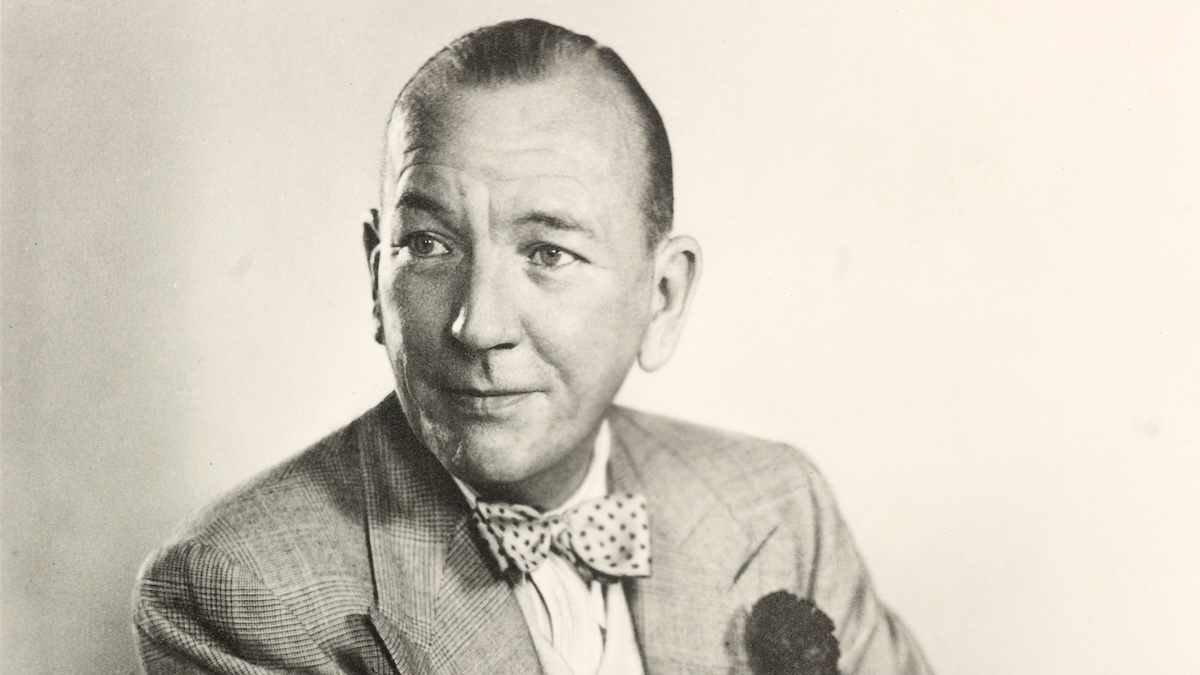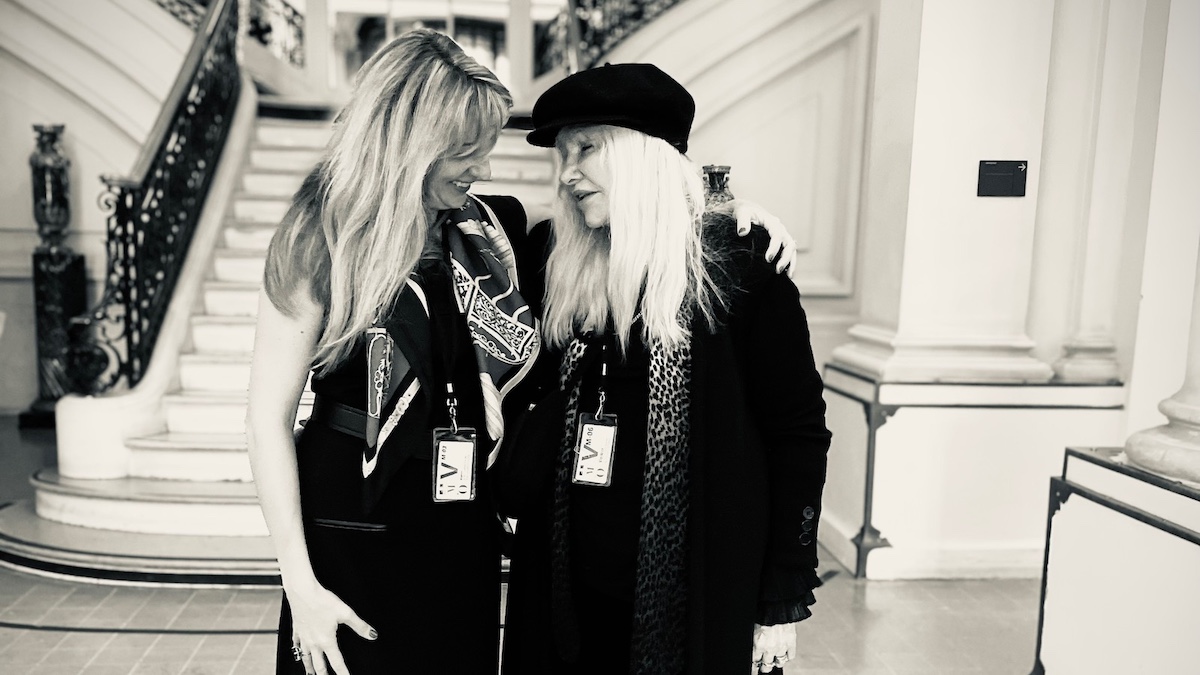
Playwright Guy Unsworth adapted everyone’s favourite 1970s classic British TV comedy, Some Mothers Do ’Ave ’Em (UK) for the stage. We spoke to Guy about the show’s inspiration and continued appeal – and his experience meeting the sitcom’s late creator, Raymond Allen. Let’s step into the chaotic yet heartwarming house of Mr and Mrs Spencer!
…
What inspired you to adapt the 1970s sitcom Some Mothers Do ’Ave ’Em for stage?
I was a big fan of the original for the great stunts and silly humour, however when I came across the episodes in series 2 where Betty becomes pregnant, I realised there was a really interesting emotional depth to the two central characters which could be explored further. Many TV sitcoms don’t translate well to the stage due to their sketch/episodic nature which doesn’t suit elongating. In this case I felt that if we could give Frank and Betty the heart and depth of a Richard Curtis rom-com and a comedic setup worthy of a Michael Fran, this could be a special concoction. Importantly though, I felt strongly that this should be an adaptation written specifically for the stage, not a regurgitation of TV material.
How and why did you choose these particular events for your stage adaptation of the series?
Frank has always struck me as a somewhat tragic character. I think he’s a victim of a generation when ‘being a man’ meant a strong expectation to be the bread winner and a providing father. He is so conscious of that demand that he crumbles under any pressure to do so (job interviews, paying bills, being a father, etc.). Starting the story therefore with no job, no child and no prospects of either would ramp up the stakes. It would also provide a meaningful dramatic journey for him and Betty to go on. We love it when things go wrong, but I wanted, in true rom-com fashion, for him to prove us wrong and become the great British underdog.
data-animation-override>
“I felt strongly that this should be an adaptation written specifically for the stage, not a regurgitation of TV material.”
What were the challenges of transferring the humour and the stunts from screen to stage?
The interior scenes of the original were shot with a live studio audience so I had a feeling that that material would translate well to the stage. However, Michael Crawford (Frank) had some wonderful close up expressions in silences that I knew wouldn’t carry in a theatre. To me, silence on screen is golden, silence in the theatre is deathly, so I wanted to pack the script in with six or seven laughs a page, either visually or verbally for it to stand up on its own feet and enable us to keep it all moving at a pace.
The other challenge was spacing out the more visual stunt elements. These would normally happen at the end (i.e peak) of each episode so I needed to find ways to ‘reset’ the chaos on stage, finding a shape to the piece as a whole, not just the individual moments.
Another major consideration was that I felt it was too much to expect all the comedy to come from Frank, hence inventing a slightly ‘revived’ character for Frank’s mother-in-law from the original, who could offer a slightly different comic mode. There’s a significant lack of good roles for older women, so this was a nice opportunity.
Some Mothers Do ’Ave ’Em premiered nearly 50 years ago, and audiences still love it. Why do you think these characters have such lasting appeal?
I think the fact that it was a family sitcom is quite unique and as a result the comic material isn’t offensive. Unlike many sitcoms that punch down at lower classes, other nationalities, races or women, Some Mothers roots for the underdog. And whilst Frank’s the one that keeps failing, it’s the members of authority that end up with egg on their face — quite literally: priests, doctors, business owners, bank managers, etc. Its heart is firmly in the right place, and I think that infectious spirit is extremely welcoming to its audiences.
data-animation-override>
“…the fact that it was a family sitcom is quite unique and as a result the comic material isn’t offensive.”
Raymond Allen, creator of the series, passed away earlier this year. Tell us about him. What was it like to meet and work with Mr Allen?
Ray was amazing. I was only 28 when I met him and I expected to meet a daunting comedy giant who would think I was punching way above my weight. In fact he was a very kind, gentle, unassuming man, who was very surprised that I was so interested in his work. He was obviously anxious that my intentions for the show were well placed, but as the show developed he was nothing other than supportive and enthusiastic. I got the feeling that the BBC series had become a bit overwhelming for him in the end, and to be developing it for the stage with a relatively small group of collaborators was a very happy experience for him. He was a quietly hilarious man who embodied the kindness and warmth of his own comedy.
Aside from Mr Allen, are there any other playwrights or theatremakers who have inspired your writing and the kind of work that you want to make?
So many… Michael Frayn (US/UK), James Graham, John Steinbeck and Michaela Coel, plus a bit of Richard Curtis, Laurie Nunn and Charles Dickens for good measure. I directed three fantastic new plays recently by Adrian Lukis, Emily Head and Shomit Dutta, and I now have a bug for developing new writing too. As for my own playwriting, I think my inspiration is a curious melting pot of Mr Bean, Edward Hopper and too many Doritos.
data-animation-override>
“I think my inspiration is a curious melting pot of Mr Bean, Edward Hopper and too many Doritos.”
Do you have any advice for theatremakers looking to stage the play in future?
Have fun, embrace the challenge, and don’t do impressions of the original. Treat it like it’s a play of its own. The audience may take five minutes to accept it, but if they truly believe the situation is about real people in front of them the pay off will be infinitely greater, comedically and emotionally.
What do you want audiences to take away from the show?
A big warm grin, please.
When it premiered, one critic described the play as a ‘farce with a heart’, which I love. It’s knockabout farce at times but if the investment in the situation is there, it also carries a message that ‘so long as we have love in our lives we’ll be alright’. That message is important right now, and that feeling in our theatres even more so.
…
To license a production of Some Mothers Do ’Ave ’Em, visit the website of Concord Theatricals.

Noël Coward’s Travels

Kate Chopin in New Orleans: Mother-Daughter Author Duo Collaborate on Historical Book

